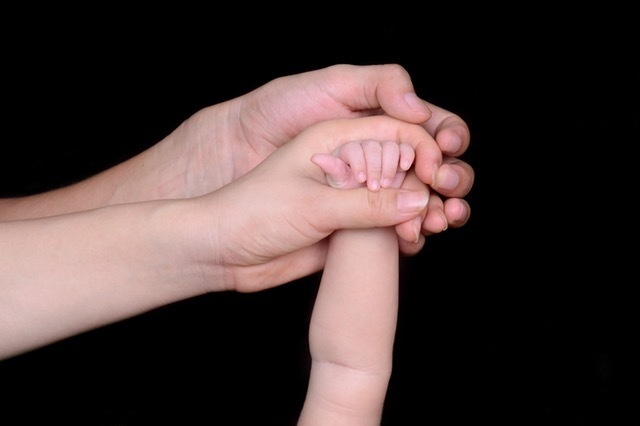Disclaimer: This is not comprehensive, but a starting point. Likewise, I’m not a professional, but a survivor of childhood narcissistic abuse. I write about my experiences, observations, and what I’ve learned through research. This is a condensed version of an article originally posted on my website.

June 1st is World Narcissistic Abuse Awareness Day, which inspired me to write about some of the signs you may have been raised by a narcissist. If this resonates with you, please research Narcissistic Personality Disorder, narcissistic parents, narcissistic abuse, and Narcissistic Victim Syndrome to learn more. You can reclaim your life. Educating yourself is the first step.
The following are common effects of narcissistic abuse:
1. Feel You Don’t Have Rights
Because your parent treated you like a “second-class citizen,” you didn’t have rights in your childhood home. You weren’t granted the freedom to express yourself or your feelings and opinions, make mistakes and learn from them, set and maintain boundaries, etc. Due to this, you are compelled to explain yourself and justify your feelings, and you are reluctant to voice your opinion, because you fear judgment.
2. Feel Guilty for Having Basic Needs
Narcissists cannot focus on anything but themselves; therefore, they find everyone else’s needs annoying. And they resent having to care for anyone because, as the perpetual victim, they believe they deserve to be cared for at all times. This makes you feel guilty for having basic human needs, like food, emotional stability, or medical care when necessary. Moreover, it leaves you believing that wanting your basic needs to be met is somehow selfish.
3. Boundaries Are Confusing
Due to their astounding inability to view you as anything but an extension of themselves, your parent refused to let you form boundaries, which makes it difficult to set and maintain them in adulthood. Further, you had to “take up as little space” as possible to stop them from bursting into tears or exploding when you expressed a need or emotion. This blurred the boundaries more, as you had to become their “caretaker” to try to prevent their meltdowns.
Narcissists often put their children in the position of “parenting” them. If you took on the role of caregiver in any way as a child, you were parentified, and it reinforced the notion that your needs were unimportant. As an adult, you are concerned with being selfish and view your needs as a burden to others, so you organize your life around everyone else.
5. Chronic “People Pleaser”
Because your parent’s wants and needs came first, you were conditioned to bury yours to better serve them. Another contributor is that narcissistic parents force their children to continually seek approval by setting an expectation, then “moving the goalpost” once the expectation is met. If your parent made you earn their love, you probably feel compelled to prove you are worthy of love now.
If your parent made you earn their conditional love, you became a perfectionist to bolster your chances of being “good enough.” On the other hand, it may have been to prove to yourself and others that your parent was wrong. Either way, it’s about earning your place in the world, as you were raised to believe your worth was contingent upon the tenuous value your parent placed on you, rather than being taught your inherent value as a human being.
Many times, children of narcissists are exceptionally empathetic. This is a survival mechanism. When you have a parent who becomes enraged at the slightest provocation, and sometimes for no reason at all, you become hyper-aware of their facial expressions, body language, and energy in an attempt to avoid being abused.
8. Second-Guess Yourself
If your parent consistently questioned your actions, dictated how you should feel, and challenged your perceptions, you learned you couldn’t trust yourself. Additionally, narcissists convince their targets they deserve the abuse. As an adult, this causes you to have potentially debilitating self-doubt.
Because your parent saddled you with such intense self-doubt, you have trouble making decisions. This is due to the scrutiny you likely endured for making even small mistakes as a child. In adulthood, you become paralyzed with fear and overthink everything until you are too overwhelmed to make a decision.
10. Trust Issues
Narcissistic parents condition their children to not trust their feelings, instincts, and perceptions. Besides that, you probably also knew you couldn’t trust your parent from an early age. If you can’t trust your parents or yourself, how can you possibly trust anyone else?
If you learn you cannot rely on or trust anyone, you may become fiercely independent. Another reason for this is the constant criticism you were undoubtedly subjected to. Being scrutinized for the way you did everything, probably taught you to do things on your own to avoid ridicule.
12. Profoundly Lonely
I believe it is the combination of abuse and neglect, along with never feeling like you fit in because you were convinced you were strange, stupid, crazy, etc. Narcissists are devoid of positive emotion and love, leaving their children feeling alone because they are.
13. Distorted Self-Image
Because narcissists put their children down and don’t allow them to recognize or own their talents and interests, you feel like you are still “finding yourself.” This leads to difficulty acknowledging your abilities and positive attributes because your parent programmed you not to. In addition, low self-esteem and a lack of self-confidence make it nearly impossible to view yourself accurately.
Narcissistic abuse is insidious, highly misunderstood, and exceedingly prevalent in society as a whole, which is why awareness must be spread. Since this type of abuse can be so subtle, and its perpetrators so charming and even charismatic, the average person has great difficulty understanding it. Nevertheless, its effects are devastating. Please remember it was not your fault. Narcissists are abusive by nature, so there was nothing you could have done as a child to affect their behavior. Unfortunately, your parent can’t stop being abusive, and that is their defect, not yours.
Originally published at www.huffingtonpost.com


